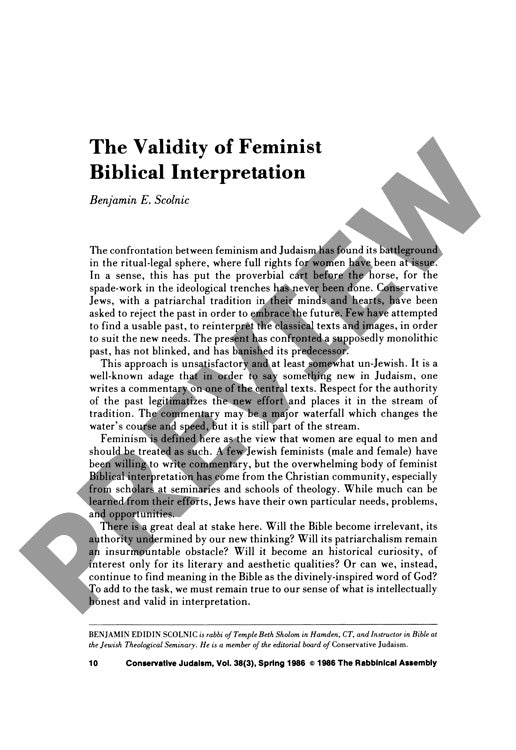The Validity of Feminist Bibilical Inter
Couldn't load pickup availability
Can feminist biblical interpretation remain true to Conservative Judaism while challenging patriarchal readings of sacred texts? Through careful analysis of two controversial passages - Jephtah's daughter (Judges 11) and the Sotah ritual (Numbers 5) - feminist interpretations emerge as legitimate scholarly endeavors that preserve the Bible's centrality in modern religious life. The comparative methodology examines Phyllis Trible's "depatriarchalizing" reading of Jephtah as a faithless father whose daughter becomes a symbol of courage, contrasting this with traditional rabbinic interpretations that similarly condemn Jephtah while elevating his daughter. Herbert Brichto's feminist interpretation of the Sotah ritual as protective legislation for women rather than a trial by ordeal receives similar scrutiny. While specific conclusions drawn by both feminist scholars warrant critique, their interpretations remain valid through adherence to sound exegetical principles rather than eisegesis. Feminist biblical interpretation, despite occasional interpretive shortcomings, represents a necessary religious act that opens new possibilities for understanding sacred texts. Such interpretive work proves essential for integrating feminist insights into Jewish tradition through commentary, thereby maintaining biblical authority while addressing contemporary moral concerns about gender equality. This approach allows the Bible to remain divinely-inspired Scripture rather than merely historical curiosity.

More Information
-
Physical Description
-
Publication Information
Published 1986
ISBN
-
Publication Credits
Benjamin Scolnic

